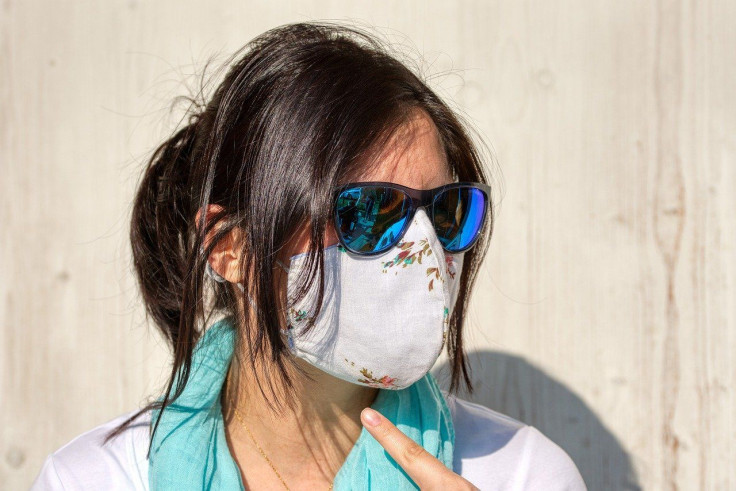Mask Mouth? Don't Blame the Mask, Dentists Say

You may have seen social media posts about masks causing bad breath or infections. But do they? We’ve reached out to several experts for advice to get you through the pandemic with your smile intact and breath unsullied.
Are Masks Bad For Your (Dental) Health?
According to Steven Barefoot, DDS, from DentaQuest, there is little reason to be concerned. “There is no evidence that wearing masks causes or exacerbates dental disease. If this were a true concern, dentists and other health care providers would be experiencing increased dental disease and problems, and that has not been reported.”
Marianna Weiner, DDS, of Envy Smile Dental Spa in New York City also disputed the idea that masks pose a dental health risk. “I can attest to the fact that breathing the carbon monoxide we release back into our lungs and mouth is not the greatest for our teeth, but your face mask is not causing your bad breath, it’s only making you more aware of it.”
Jared Cox, DDS, of Today's Family Dentistry in Searcy, Ark., made an important point. “Perhaps it’s better said that the masks are revealing the inadequacy of our typical oral hygiene habits and raising our awareness of what dentists already know - we need to give more attention to our oral care every day. Don’t blame the masks. Take responsibility for your health.”
Preventing Bad Breath
If your mask isn’t causing bad breath, what is? Our experts suggested three main causes: leftover food, bacteria and dryness.
Dr. Barefoot said, “Mask mouth is really about the mask effectively capturing bad breath odor (more effective than, say, breathing into your palm to check your breath), so you could consider it a good heads-up about bad breath.”
The solution, he said, is proper cleaning. “Good oral hygiene will remove sticky plaque that entraps food particles and provides a home for bacteria. Daily brushing and flossing will go a long way to maintaining good oral health and eliminating halitosis [bad breath]. And water. Drink plenty of water to combat the potential for dry mouth and to wash away food remnants throughout the day.”
Dr. Weiner told us how to avoid mouth dryness. “Mouth breathing in general is not helpful, as it dries everything out, removing the saliva that protects us, but this can be fixed by making sure you drink plenty of water throughout the day. Avoid acidic drinks as much as possible, and I also highly recommend mints, as they encourage saliva flow, further protecting us from mask complications.” Mints will help mask any bad breath you have, too.
Dr. Barefoot also cautioned, “Toxins given off by bacteria in oral infections also are odor-producing. Thus, regardless of the mask, any time something is or seems different with your mouth or breath, it’s important to visit your dentist and doctor to rule out any significant health issues that may exist.”
The Take Home
Research shows that wearing a mask is one of the most effective tools in stopping the spread of COVID-19. And, it isn’t going to hurt your dental health. You may notice your bad breath more, but you can fix that by keeping your mouth clean and cared for.
Sean Marsala is a health writer based in Philadelphia, Pa. Passionate about technology, he can usually be found reading, browsing the internet and exploring virtual worlds.
Published by Medicaldaily.com



























